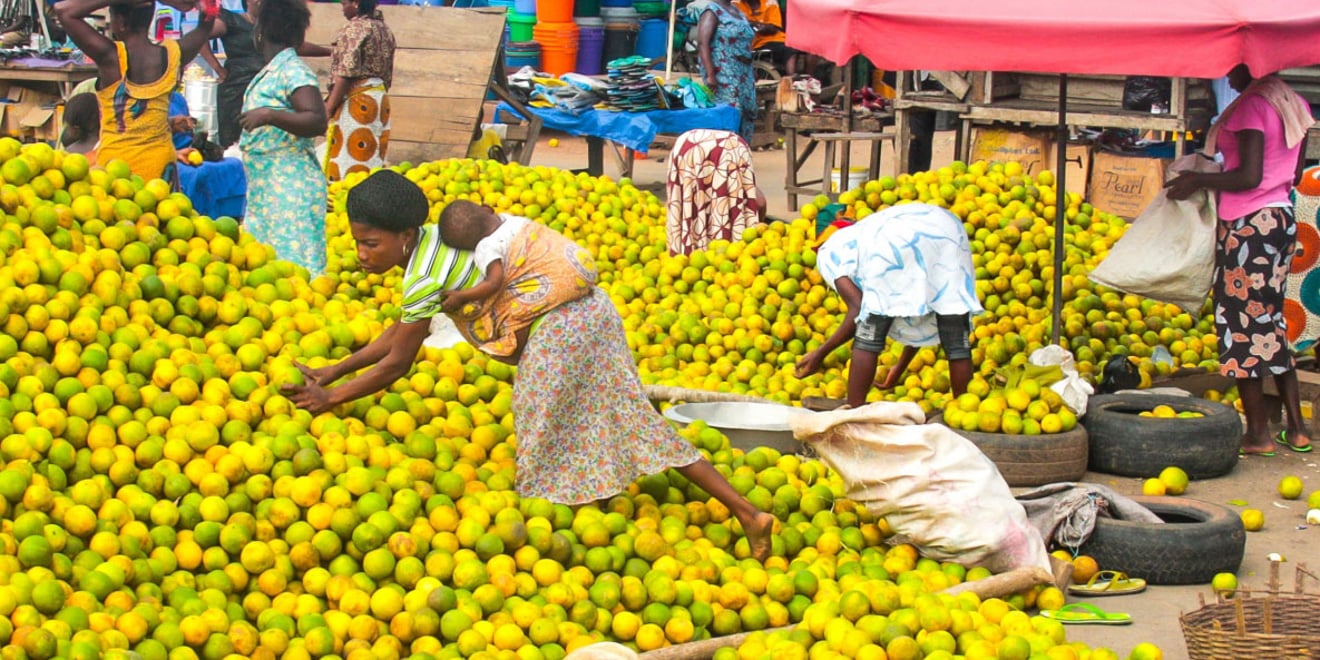Since its Oct. 2 launch, the data-driven Stanford Center on Global Poverty and Development (CGPD) has engaged researchers, students and leaders from both the private and public sector to offer insights on some of the greatest challenges of global development.
“Our goal is to build a community focused on poverty alleviation and economic development,” said deputy director Jessica Leino. “We want to help that community engage with policy makers and foster broader connections.”
Researchers at the CGPD, located in the John A. and Cynthia Fry Gunn Building, work at the intersection of academic insights and policy making.
“It is exciting to be at the front lines of academic research,” Leino said.

Health initiatives
A faculty affiliate of the center, economics professor Pascaline Dupas, created an HIV risk lesson plan for teenage girls. Following field work in Western Kenya, she found that many girls had a “sugar daddy” to help with the costs of living but lacked awareness of increased HIV risk associated with older partners. According to Dupas, many teenagers believed that rates were lower among both older and wealthier men.
“Making it salient that the HIV risk profile is not flat as age increases seemed like a very useful thing to do,” Dupas explained.
Under Dupas’ project, facilitators led one-time 50-minute discussions in eighth-grade Kenyan classrooms. The objective was to grab students’ attention with a video about the dangers of “sugar daddies” and statistics on HIV infection rates by age and gender. The key message was that students were more likely to remain HIV-free if they refrained from engaging in sexual relationships outside their generation.
After one year of the experiment in over 300 schools, treatment groups experienced a 61 percent decrease in child-bearing with men five or more years older. The lesson plan was scaled up by several non-governmental organizations and expanded to other countries with high rates of HIV infections.
The CGPD also holds discussions and hosts events with organizations like the World Bank and co-hosts events with groups from different countries, such as a “Health and India” event with local Indian partners.
The CGPD hosts flagship multi-faculty initiatives as well as research and engagement programs in China and India. One initiative, Data for Development, uses technology to study poverty in the hopes of alleviating it. For example, the initiative employs satellite imagery and machine learning to examine “hidden” pockets of poverty around the world.
“The goal is to leverage new technology to generate data more cheaply,” Dupas said.
Data for Development
One study in the Data for Development initiative, the Sustainability and Artificial Intelligence Lab, combines high-resolution satellite imagery with machine learning algorithms to look at how developed specific locations around the world are.
“We can learn about income levels, access to infrastructure and quality of governance from looking at satellite imagery,” Dupas explained.
The CGPD is currently funding “Data for Sustainable Development,” a class taught by earth systems professor David Lobell Ph.D. ’05. In the class, students gain tools for conducting research and exposure to machine-learning approaches in order to consider inexpensive or alternative data streams to address issues of global poverty, health and governance. Moving forward, the CGPD is helping researchers attract more partners that have access to new data sources. The ultimate goal is to provide a public good that can be used to address issues faced by developing countries.
Global research
Hongbin Li Ph.D. ’01, director of the China program, said the program seeks to address three key issues hindering poverty alleviation in China: problems with education, environment and productivity. He said addressing issues of pollution in China is difficult because of the unique structure of costs and benefits.
Li’s research specifically focuses on productivity challenges in China using large scale surveys of 3,000 firms and 60,000 workers in the Guangdong and Hubei provinces with the mission of conducting the world’s most comprehensive employer-employee survey in China. His research seeks to answer what happens to factories and low-skilled workers as labor becomes more expensive.
“China is the world factory, but so little is known about the factories… We don’t know how the firms are managed, the types of technologies used and the innovation process,” Li said.
For each factory, Li’s team surveyed workers about their educational backgrounds, birthplace, skill level and experience in the factories. “As labor becomes more expensive, what happens to factories?” Li said. “What happens to low-skill workers who can be replaced by machines?”
Due to rising costs of labor and high worker turnover in China, many firms are becoming increasingly automated, replacing low-skilled workers with machines.
CGPD’s India program focuses on three issues impeding development in India regarding management, agriculture and government outreach.
Moving forward, the CGPD seeks to continue engaging more undergraduate students. Program manager Corinne Thomas works specifically on reaching more undergraduates.
Students can work abroad through the center, Thomas noted. Undergraduates can get involved with the Summer Undergraduate Field Research Assistant Program, the Stanford SEED internships related to business development and the Kakatiya Sandbox, which provides opportunities related to sustainable development.
“Our overseas opportunities can change the trajectory of what an undergraduate chooses to study at Stanford and what they choose to do in life,” Thomas said.
Contact Mini Ruda at mruda ‘at’ stanford.edu.
